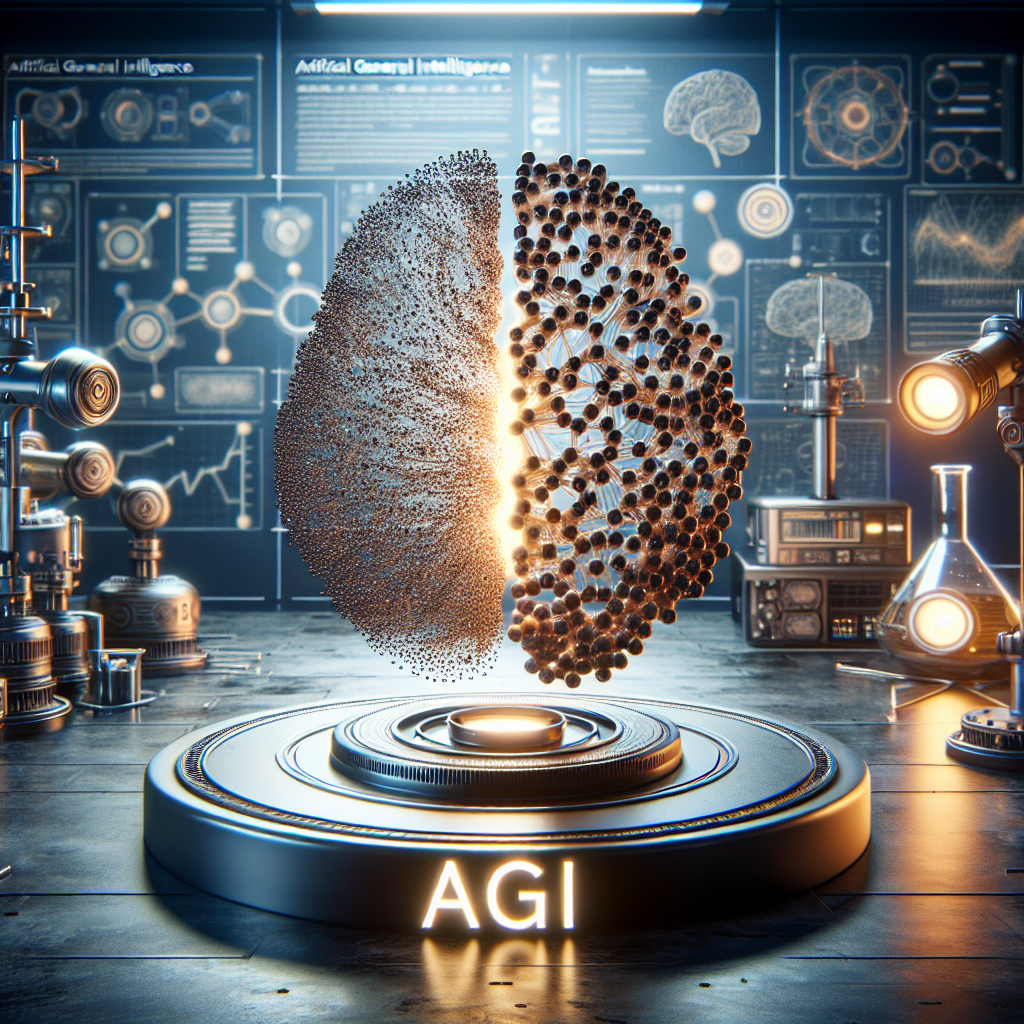Artificial General Intelligence (AGI) is a term that refers to a type of artificial intelligence that can perform any intellectual task that a human can do. Unlike narrow AI, which is designed to perform specific tasks, AGI aims to replicate human-level cognitive abilities across a wide range of domains. The development of AGI has the potential to revolutionize industries, society, and even the nature of human existence.
AGI has been a long-standing goal in the field of artificial intelligence, with researchers working towards creating machines that can learn, reason, and adapt in a way that mimics human intelligence. While current AI systems excel at specific tasks such as image recognition or natural language processing, they lack the general intelligence and flexibility that humans possess. AGI seeks to bridge this gap by creating machines that can think and learn like humans.
The development of AGI has the potential to bring about significant advancements in various fields, including healthcare, finance, transportation, and education. With AGI, machines could assist doctors in diagnosing diseases, predict stock market trends with greater accuracy, optimize transportation routes, and personalize educational experiences for students. The possibilities are endless, and the impact of AGI on society could be profound.
One of the key challenges in developing AGI is creating systems that can learn and adapt in a way that is similar to human intelligence. While current AI systems can excel at specific tasks, they lack the flexibility and adaptability of human intelligence. AGI researchers are working on developing algorithms and models that can simulate human cognition, reasoning, and learning processes.
Another challenge in developing AGI is ensuring that the technology is safe and ethical. As AGI systems become more advanced, there are concerns about the potential risks and unintended consequences of creating machines that can think and learn like humans. Researchers are working on developing safeguards and mechanisms to ensure that AGI systems are aligned with human values and objectives.
Despite the challenges, the potential benefits of AGI are immense. The development of AGI could lead to breakthroughs in science, technology, and medicine, and could transform the way we live and work. From personalized healthcare to autonomous vehicles to personalized education, AGI has the potential to revolutionize industries and society in ways that we can only imagine.
FAQs
Q: What is the difference between AGI and narrow AI?
A: AGI refers to artificial intelligence systems that can perform any intellectual task that a human can do, while narrow AI is designed to perform specific tasks or functions. AGI aims to replicate human-level cognitive abilities across a wide range of domains, while narrow AI is limited to specific tasks such as image recognition or natural language processing.
Q: How close are we to achieving AGI?
A: The development of AGI is a complex and challenging task that requires significant advancements in artificial intelligence research. While progress has been made in developing AI systems that can perform specific tasks, achieving AGI remains a long-term goal. Researchers are working on developing algorithms and models that can simulate human cognition, reasoning, and learning processes in order to create machines that can think and learn like humans.
Q: What are the potential risks of AGI?
A: There are concerns about the potential risks and unintended consequences of developing AGI systems. As AGI systems become more advanced, there are concerns about the potential loss of control, misuse, and unintended consequences of creating machines that can think and learn like humans. Researchers are working on developing safeguards and mechanisms to ensure that AGI systems are aligned with human values and objectives.
Q: How will AGI impact society?
A: The development of AGI has the potential to bring about significant advancements in various fields, including healthcare, finance, transportation, and education. With AGI, machines could assist doctors in diagnosing diseases, predict stock market trends with greater accuracy, optimize transportation routes, and personalize educational experiences for students. The impact of AGI on society could be profound, revolutionizing industries and transforming the way we live and work.

